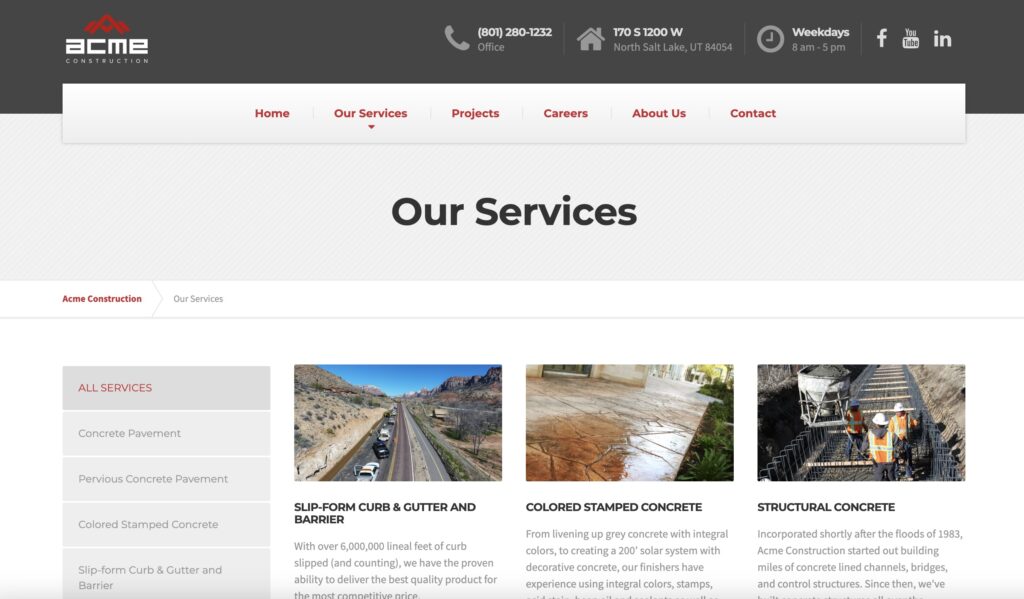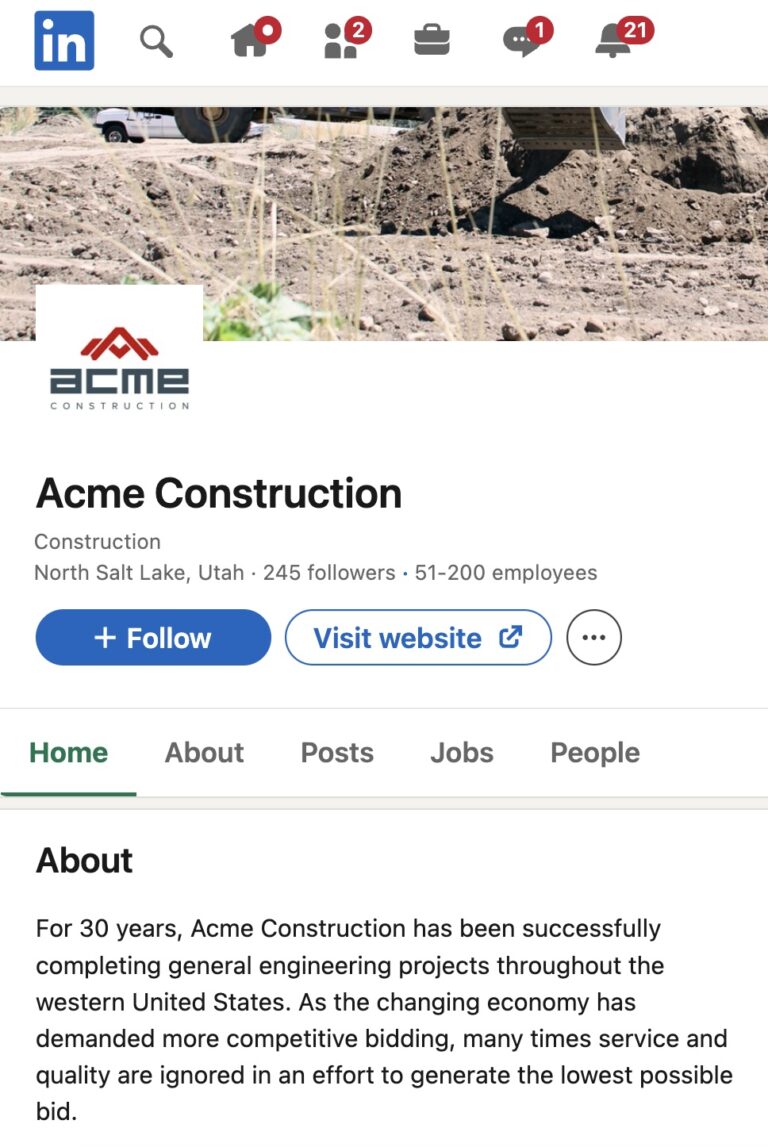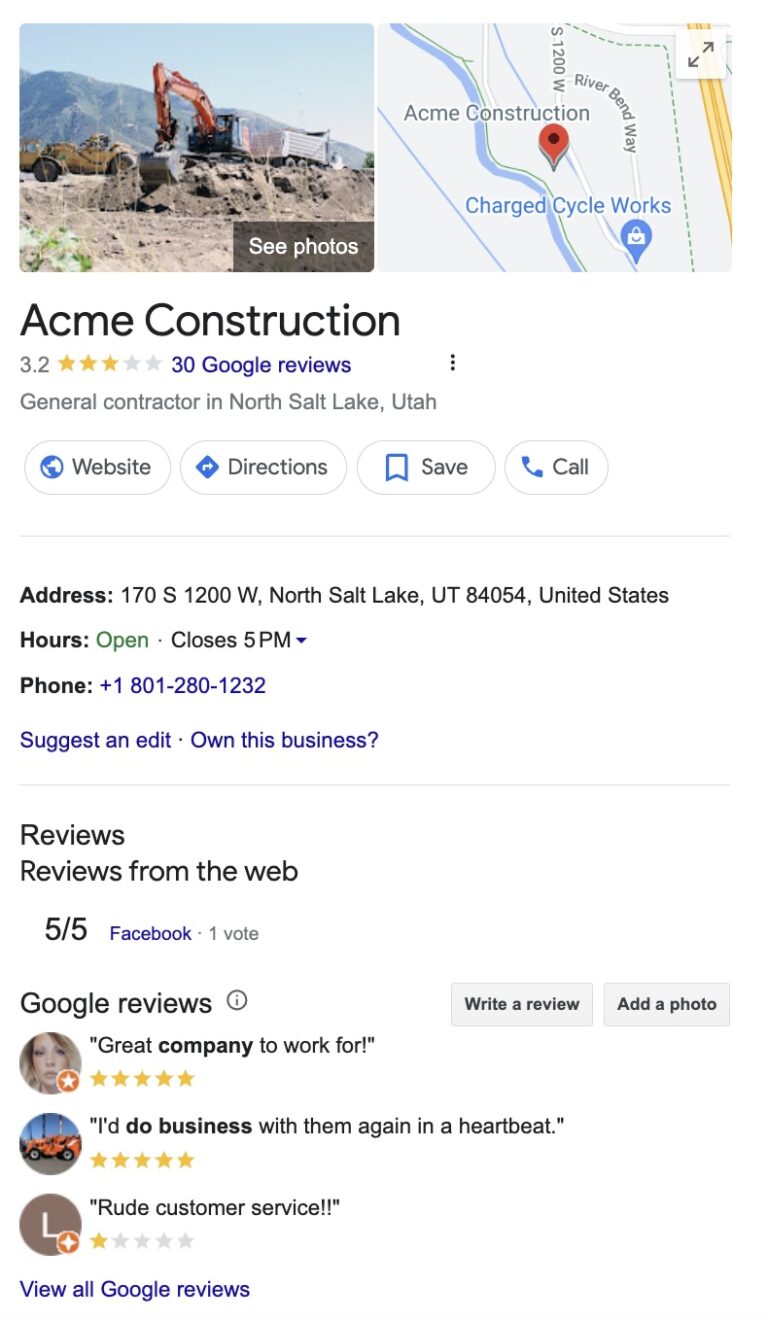Can Acme Construction Dig Out of A $228,428 Hole?

Allegations of Insolvency
Acme Construction, a prominent player in Utah’s construction scene, is caught in a financial snare.
The company owes Summit GeoStructures, a subcontractor that reinforces and stabilizes soil, a significant debt of $228,428.28 for their work on the SR-111 project, commissioned by the Utah Department of Transportation.
This outstanding balance, lingering like an overcast sky, threatens Acme’s once-solid standing in the industry. Questions arise about Acme’s next moves to resolve this escalating issue or whether the construction company will declare bankruptcy.
A Leak in the Finances

The foundation of Acme Construction’s predicament lies in the unpaid labor of Summit GeoStructures.This company, adept at underpinning the earth for infrastructural safety, has yet to receive full compensation for their contribution to the SR-111 project.
The contract between the two companies took a turn when Acme, entangled in its financial woes, stalled on its promise to settle the debt directly with Summit.
The situation unfolds beyond a single transaction. It unveils the inherent risks of delayed payments in construction’s layered hierarchy. Acme’s reluctance to fulfill its obligations not only jeopardizes its future but also signals potential distress for the industry. Subcontractors, crucial yet vulnerable, bear the brunt when cash flow in larger companies stagnates.
The Ripple Effect of Acme's Potential Insolvency
The implications for Acme Construction are profound. Settling the debt is not just about balancing books—it’s vital for maintaining Acme’s project pipeline, upholding its market reputation, and ensuring job security for its workforce. The wider circle of entities reliant on Acme — employees, subcontractors, and suppliers — observes with concern. The integrity of business dealings, the commitment to timely payments, and the enforcement of equitable financial practices are all on trial here.
Acme Construction’s challenges with unpaid invoices underscore an industry-wide wake-up call: robust financial stewardship is non-negotiable. The construction landscape depends on the trust that firms will honor their debts. As Acme grapples with this fiscal sinkhole, the sector watches closely. How Acme responds could either reinforce confidence in construction’s economic practices or serve as a cautionary tale for businesses teetering on the edge of their own financial chasms.

What's Next for Acme Construction?
Acme Construction had initially committed to paying Summit GeoStructures directly, bypassing the troubled Interwest Construction, another subcontractor who was also involved in this financial mess, but failed to follow through on this promise. This failure to pay has left Summit GeoStructures bearing the financial burden of completed work and has raised questions about the business practices of both Acme Construction and the Larsen family who owned Interwest Construction.
The financial woes facing Acme Construction have sent shockwaves through the Utah construction industry, with many subcontractors and suppliers now questioning the company’s ability to meet its financial obligations. The potential insolvency of Acme Construction could have far-reaching consequences for the local economy, putting jobs and future projects at risk.
As the legal battle between Summit GeoStructures and Acme Construction unfolds, industry experts are calling for increased transparency and accountability in the construction sector. Many believe that stronger financial management practices and more stringent oversight are needed to protect subcontractors and ensure the long-term stability of the industry.
The case of Acme Construction and Summit GeoStructures serves as a stark reminder of the importance of financial integrity in the construction industry. As the sector grapples with the fallout from this high-profile dispute, many are hoping that it will serve as a catalyst for much-needed reform and a renewed commitment to fair and ethical business practices.
In closing, Acme’s narrative serves as a stark reminder that financial resilience is as crucial as structural integrity. As the company navigates its way out of this fiscal pitfall, its actions will either restore stability or see it shut up shop like Interwest Construction.



